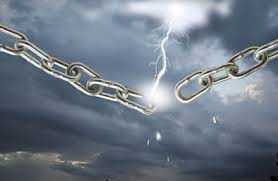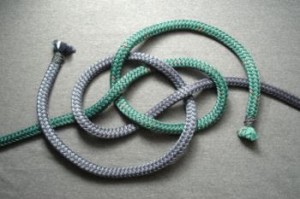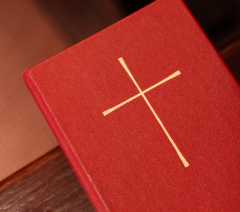
RELEASING ENERGY FOR JUSTICE
Preached at St. Benedict’s Episcopal Church
September 14, 2014
What would you do?
Picture this: Growing up, you were your father’s favorite child. But your brothers came to hate you, and finally they threw you into a pit, and sold you into slavery. They told your father you were dead. But you survived slavery – and used your wits to be a wise leader of a great nation. Now, after all these years, you meet your brothers again. What would you do?
Joseph said, “Even though you intended to do harm to me, God intended it for good.” (Genesis 50:30)
Or picture this: You were born into a family of strong, intelligent and hard-working people, but they belonged to the despised underclass in your nation. You grew up to become a passionate advocate for the rights of your people – and the leaders of your nation threw you into a harsh prison for a quarter of a century. Now, after all these years, you are out of prison and you meet your tormenters again. What would you do?
Nelson Mandela said, “Resentment is like drinking poison and then hoping it will kill your enemies…. As I walked out the door toward my freedom, I knew that if I did not leave all the anger, hatred and bitterness behind, I would still be in prison.”
Forgiveness opens the door to transformation
In today’s Gospel (Matthew 18:21f), Jesus tells us forgive others no matter how many times they sin against us.
This is not a math lesson (it would be highly improbable for someone to sin against you that many times in one day). This is a spiritual lesson: every time we realize we are still clinging to old hurts, we must forgive – let go – again. Someone may have actually hurt me one time, but I may be offended every time I remember the event, and each time I do, I have a new occasion to practice forgiveness.
Forgiveness shuts the door on yesterday’s wounds. If we cannot forgive, we are in bondage to the past – and when our past becomes our present, we are robbed not only of the present, but of the future.
Forgiveness is not forgetting
Some people think that they will never be able to forgive because they cannot forget what has happened. And there are some things so awful, so traumatic that we will never forget them. But we can always choose to forgive – that is, let go of the ‘re-sentment’, the ‘re-feeling’ of a memory over and over again. If we cannot forget, memories can actually aid us if we learn to use them as reminders to forgive once again.
And when we let go of resentment, we have freed energy for love. Embracing forgiveness – like Jesus, like Joseph, like Nelson – can eventually turn painful memories into redemptive events.
No matter what negative events the world throws at us, we can, with God’s help, find a way to benefit others from what has happened to us. Consider Joseph again, who was able to see that – despite the injustice – being thrown into a pit led him to a place of leadership where he could save his people (and others) from famine. Consider Nelson Mandela again, who because of his forgiveness towards his oppressors, was able to lead his country into a process of healing.
When we decide to walk in forgiveness, we allow God to work through us in powerful ways.
Forgiveness is not getting justice
Forgiveness is difficult not just because of the depth of our feelings, but because of our desire for justice. When we are wronged, we want things to be made ‘right.’ In fact, it often feels like by forgiving, we are removing the offender’s obligation to make things ‘right.’
There is a spiritual debt created by sin, which is why Jesus spoke of debts and debtors in the Lord’s prayer: “Forgive us our debts, as we also forgive our debtors.” (Matthew 6:9f) Every time we sin against others, we become indebted to them to ‘make things right.’ The debtor, the wrongdoer, always has a moral and spiritual obligation to restore the damage done to another person.
But forgiveness is not accepting life without justice; it is simply releasing our right to collect the debt from the offender. While it is true that we may deserve justice, by exercising forgiveness we are releasing those who hurt us to God, knowing that it is ultimately God’s responsibility to make sure that justice is done.
Jesus tells us forgiveness allows us to participate in the divine nature of God – who not only forgives us our sins, but gives us power to forgive those who hurt us.
Divine love: the energy that enables us to love
God is love, and only God can give us the grace and power to love and forgive others. This is the Gospel, the message Jesus gave Christians to take to the world. And yet today much of the world thinks of religion – including the Christian Church – as judging and judgmental. Could this be because people identified as Christians are often far more interested in being right and righteous than in being compassionate and loving?
Individual Christians, like everyone else on earth, find it hard to forgive – to let go of our desire for justice when we have been hurt.
But let’s be honest: the Church as a whole is also known for judging the beliefs of others as wrong, as heresy, even dangerous. For centuries, much of the Church has said, “If you don’t believe correctly, you won’t get into heaven.” Even today, the judgmental churches may be making the most noise.
And parts of today’s church are known for judging the actions of everyone, inside and outside the church. You can still be cast out of many churches, or refused communion, or denied a leadership position, if you don’t act according to the church’s norms. All churches don’t do this, but the judgmental ones are often most in the news.
The personal practice of forgiveness
– letting go of the desire for justice when we have been hurt –
may be a first step toward becoming less judgmental in many other ways.
Jesus calls us to be his disciples; but following him is hard. He calls every Christian to let go – to let go of our old ways of thinking; to let go of our old ways of living; to let go of our carefully crafted self images; to let go of our plans and dreams for the future. Jesus also calls us to let go of our old hurts and resentments, and to let go of judging others.
And – once more – why is forgiveness so important? Nelson Mandela had the answer; he said, “Forgiveness liberates the soul; it removes fear… That is why it is such a powerful weapon.”
Mandela continued, “I have walked that long road to freedom. I have tried not to falter; I have made missteps along the way. But I have discovered the secret that after climbing a great hill, one only finds that there are many more hills to climb. I have taken a moment here to rest, to steal a view of the glorious vista that surrounds me, to look back on the distance I have come. But I can only rest for a moment, for with freedom come responsibilities, and I dare not linger, for my long walk is not ended….For to be free is not merely to cast off one’s chains, but to live in a way that respects and enhances the freedom of others.”
To live in a way that respects and enhances the freedom of others: If we as individuals – following Jesus’ example, following all those inspired by Jesus’ example – learned how to let go of our grudges and resentments, would we be freed from our desire for personal justice, and then freed for discipleship? With God’s help, could we then use more of our personal energy to promote justice in the world around us?
All around us in our society, there are quiet churches just like St. Benedict’s, where Christians are trying daily to practice what we say here, ‘Whoever you are and wherever you are in your faith journey, there is a warm welcome for you here at St. Benedict’s!”
Could we say this a little louder? As St. Francis of Assisi – another man who understood Jesus’ teaching on forgiveness – said to his own disciples:
“Always preach the Gospel; when necessary, use words.”
As we practice forgiveness, as we practice letting go, as we practice welcoming in the Name of Jesus, we are offering the world a church of disciples, a church that truly tries to follow Jesus Christ, the Lord of compassion, the Lord of forgiveness, and the Lord of love.
Choir Anthem: “Help Us Accept Each Other”
St. Benedict’s Singers
Help us accept each other as Christ accepted us;
teach us, as sister, brother, each person to embrace.
Be present, Lord, among us and bring us to believe
we are ourselves accepted and meant to love and live.
Teach us, O Lord, your lessons, as in our daily life
we struggle to be human and search for hope and faith.
Teach us to care for people, for all – not just for some,
to love them as we find them or as they may become.
Lord, for today’s encounters with all who are in need,
who hunger for acceptance, for righteousness and bread,
we need new eyes for seeing, new hands for holding on:
renew us with your Spirit; Lord, free us, make us one!
Lyrics by Fred Kaan, music by John Ness Beck



